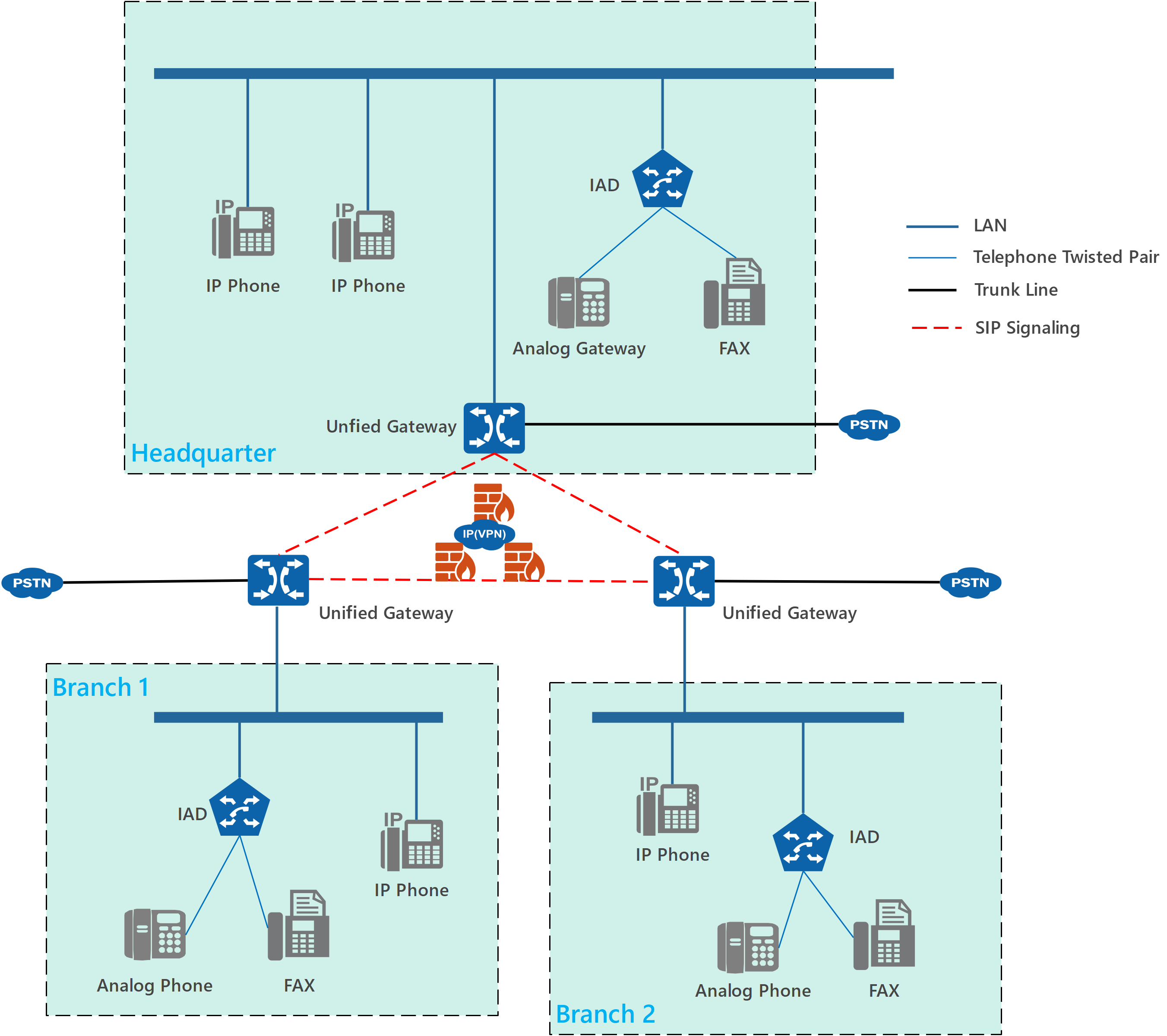Navigation: Product Description > Application Scenario >
A distributed call management network in peer-to-peer mode can be used for enterprises with 10,000-30,000 users. In such a network, two or three nodes each deploy a unified gateway, which provides call services for the corresponding node. Different nodes are connected using SIP trunks, through which inter-node calls are routed.
Network Scheme
Figure 1 illustrates a typical distributed call management network in peer-to-peer mode. This network applies only to the X1911/X1960/X1981.
Figure 1 Distributed call management network (peer-to-peer mode)

Networking Description
ϒ⁄Each node has a unified gateway deployed. The unified gateway at a node is a voice gateway, which is responsible for user registration, intra-office users, and local PSTN calls at that node. Different nodes are connected using SIP trunks, through which inter-node calls are routed.
ϒ⁄IP phones, SoftConsole users (SIP users), UC soft terminal users (SIP users), and IADs (on behalf of analog phones and fax machines) at a node register with the unified gateway at the node.
ϒ⁄The unified gateways at different nodes can connect to the PSTN using trunks such as PRA, QSIG, and AT0 for local outgoing calls.
ϒ⁄All business servers are deployed at the headquarters, centrally handling business operations.
Parent Topic: Application Scenario